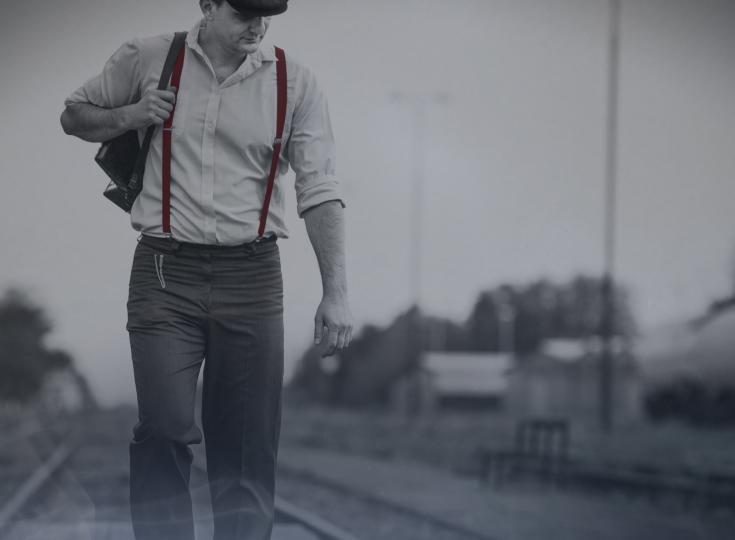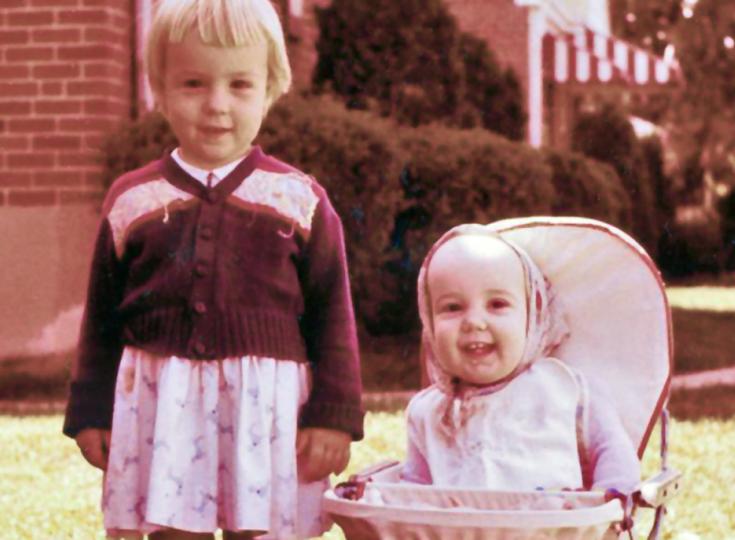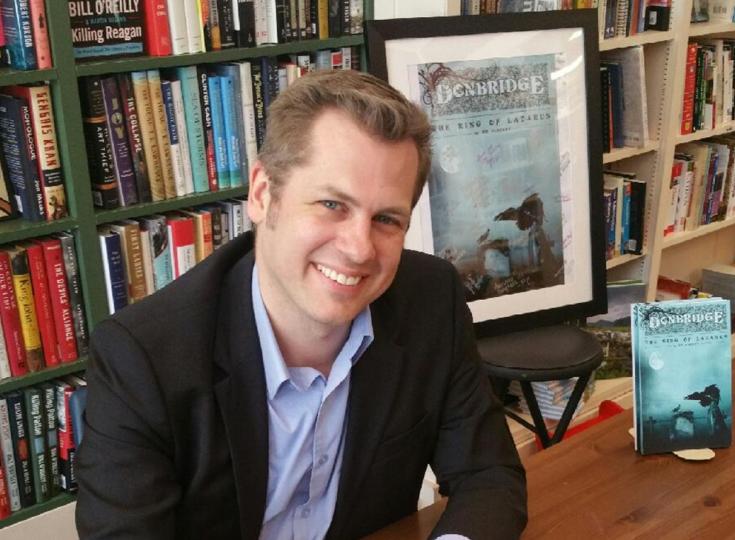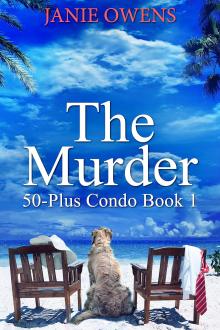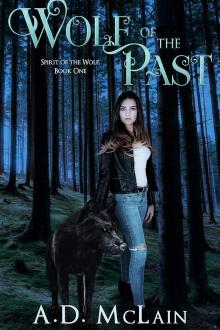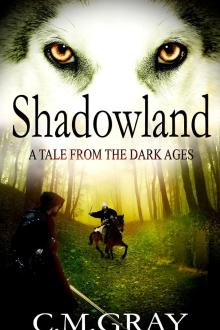Tom Strelich - A Hilarious Dystopian Read
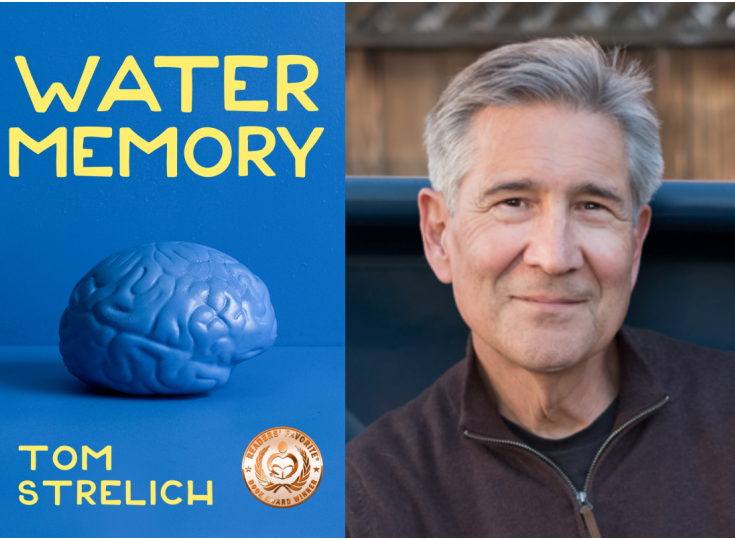
Strelich was born into a family of professional wrestlers and raised in Bakersfield, California, and his writing career began on a dare from a theatre director. His plays include BAFO (Best and Final Offer) which was commissioned by and had its world premiere at South Coast Repertory and its New York premiere at the American Place Theatre (APT); Dog Logic, which also had its world premiere at South Coast Repertory and went on to win a Kennedy Center Fund For New American Plays award for its New York premiere at the APT; and Neon Psalms, which won the Dramatists Guild/CBS New Play Award for its world premiere at the Magic Theatre in San Francisco and its New York premiere at the APT. Honors include a National Endowment for the Arts grant for playwrights and commissions from South Coast Repertory and the Actors Theatre of Louisville. Strelich has one screen credit, Out There (Showtime). His novels include, Dog Logic (loosely based on the play -- same setting, same characters, epically different story) and Water Memory (Dog Logic sequel). As our Author of the Day, Strelich tells us all about Water Memory.
Please give us a short introduction to what Water Memory is about.
Water Memory continues the satirical saga of Hertell Daggett and the duck-and-cover civilization he’d discovered in Dog Logic. It picks up the story about 10 years later when the earth's magnetic poles reverse and civilization gets its clock reset to the great cosmic flashing 12:00am from a million years ago, which results in humanity, and everybody in it, forgetting pretty much everything it learned since the last time (a million years ago).
Everybody except Hertell Daggett, who remembers pretty much everything because he'd once been shot in the head — the doctors got the bullet out, but missed a few tiny specks of copper that remained, floating inside his brain, connecting him to the things everybody else on earth is slowly forgetting. Human memory and history becomes a blank slate, and Hertell sees an opportunity to start civilization all over again, and maybe even get it right this time. What could possibly go wrong?
Water Memory has been lauded by critics and received many awards since you first published it. Please tell us more!
Water Memory has been an extraordinary journey since its inception, and I'm incredibly honored by the recognition it has received. The book not only secured 1st place in Fiction/Humor at the Pencraft Book Awards but also clinched the top spot in the audiobook category—an achievement that holds special significance for me, as I had a blast narrating the book. Additionally, earning a Bronze Medal in Literary Fiction from Readers' Favorite and being named a finalist in multiple categories at esteemed competitions such as the American BookFest International Book Awards and the Independent Author Network Book of the Year Awards was immensely gratifying. Now, with Water Memory shortlisted for the Chanticleer Mark Twain Award for Satire/Humor, I'm keeping my fingers crossed!
What inspired you to write this story? Was there anything in particular that made you want to tackle this?
I mainly wanted to see what happens next and because there are so many other things to explore: social, cultural, personal, philosophical, historical, etc.— it’s why writers write, and poets poet, and artists paint and so on. In Water Memory I wanted to explore memory, specifically the loss of it, from individual memories, to collective cultural memory, human history, and the impact on the contemporary world. If we suddenly forgot all of human history, would it be loss to be mourned or a relief to be celebrated, a tragedy to survive or an opportunity to enjoy? The book takes a satirical journey in which the world’s violence, injustice, and historical sins are not necessarily absolved, but are instead simply forgotten, as Hertell tries to start civilization all over again from a clean slate.
Satire is the perfect literary platform for this exploration because it allows both the writer and the reader to explore the landscape of the human experiment, the absurdity, the grandeur, the mystery, the horror—not with a sermon or a polemic or a sigh, but with a laugh and a nodding smile of recognition.
Besides writing, what other secret skills do you have?
I’m a pilot and soloed before I got a driver’s license (i.e., drove alone) and I've been a pilot ever since — I even wrote a crop duster pilot and a Cessna 205 into Water Memory as a major element in the book. I’m also a pretty decent Bagpiper — it’s the only instrument that comes complete with a costume and an attitude. In fact, Water Memory opens with a bagpiper playing at the site of the lost civilization of Mustard Seed (which Hertell discovered in Dog Logic).
What did you have the most fun with when writing Water Memory?
Finding out what was going to happen next since I had no idea where Water Memory was going to go, and I kept surprising myself with the directions it took. It’s actually a technique I’ve used since I was a playwright in which I’d intentionally write myself into a corner, such that the reader (or audience member) wonders, “how does the writer get out of this?” This would force me to come up with something, a twist, an unexpected turn, to send the story in some unpredictable, but logical, plausible direction and help me avoid the predictability tar pits.
Interesting cover. Please tell us more about it.
I found a great graphic artist to create a new cover for Dog Logic. As you’d expect, I asked her to design the cover for Water Memory as well. Normally a graphic artist is given the flap copy, maybe a synopsis, and some Amazon and GoodReads reviews, but for Water Memory I gave her the whole book to read, not just the flap copy and some reviews. That changed everything, and she cooked up covers for all three books in the Dog Logic Triptych (basically a trilogy but Triptych sounds better and I’ve always been a Hieronymus Bosch fan). While most book covers throb with vivid colors, six-pack abs, guns, etc., the graphic artist went in a totally different direction: an almost monochrome look which is really simple and cool and mystifying and kind of pulls you in: i.e., “Dog Logic, what’s with the dinosaur?”, “Water Memory, what’s with the brain?”, “Mustard Seed, what’s with the ice cream truck?”)
Readers say your sci-fi is very plausible. How did you pull that off?
I mainly just made sure it was believable and plausible to me. I spring from the science and engineering world rather than the literary world, so I used my knowledge of botany, biology, geology, computer science, AI, and such to put enough technical top-spin on the story elements to make them work, from Farmbots, to angelic halos, to MRIs and the fusiform gyrus (read the book, and this list will make sense).
Some have compared your work to Hitchhiker's Guide and Straight Man. Are you a fan?
This is kind of embarrassing but I’ve never read either one of them, but I’m happy for the comparison. I’m kinda weird as a novelist since I mainly only read non-fiction, mainly because you can’t make up stuff any weirder than it really is. I’ve been compared to Vonnegut, Pynchon, Robbins, Irving, and that cohort as well, none of which I’ve read, but as before I welcome and appreciate the comparison (though I wish I had their readership and royalties)
Tell us more about Hertell Daggett. What makes him so special?
He was a physicist of some prominence but had been accidentally shot in the head, and while the doctors got the bullet out they missed some tiny specks of copper that remained behind floating around around inside his brain, connecting things that aren’t connected in the rest of us, filaments of species memory going back to the beginning of time. He remembers the yodeling of dinosaurs, the dry humor of mastodons, and the rubbery smell of trilobites. It gives him a unique perspective of the modern world and allows him to remember all of the things that the rest of the world is forgetting.
Why did you title this "Water Memory”
There’s a theory that water has memory. That if you take a drop of a poison, or whatever’s killing you, and put it in a body of water the size of an Olympic-size swimming pool, and then take one drop of that and put it in another Olympic-size swimming pool, and then take one drop of that and put it in another pool, and keep doing that enough times, that you’ll eventually get to the point where you can’t find a single molecule of the actual poison in the water anymore. But the theory is that the water itself remembers, because the poison that used to be in the water, has left empty spaces where it used to be, and the shapes of the empty spaces in the water kick our cells into gear, so they can protect us just like a vaccination would.
It’s complete quackery as far as the science of it. But I’ve always thought that sometimes a thing that couldn’t possibly work at the physical level in a cell, could work at a conceptual level in a brain, in us. So I used that metaphor, water memory, for the loss of human history and personal memory and the empty spaces that are left behind and what those empty spaces make possible, for good or bad. Plus it was just a cool sounding title, and we’re mostly water anyway.
If you could start civilization all over again, what would YOU do differently?
Give it a better sense of humor.
Your books explore very unique ideas. Where do you find your inspiration?
I’m convinced it’s from the random firing of neurons.
What are you working on right now?
I’m working on the Dog Logic prequel, Mustard Seed, which tells how the duck-and-cover civilization came to live beneath Hertell’s pet cemetery: the first 48 hours after the Kennedy assassination (predicted to trigger WWIII) in which the Mustard Seed population takes shelter underground in a massive time capsule full of people; what their lives were like in their underground world while our world wobbled on above their heads for over half a century; and how an accordion player would eventually lead to their discovery by Hertell and the world above (i.e., the beginning of Dog Logic). I’m hoping to have it done sometime next year.
Where can our readers discover more of your work or interact with you?
Both Dog Logic and Water Memory are available on all the usual suspects (Amazon, Apple, B&N, Kobo, GooglePlay, Chirp, Audible, etc) and in any format you want, eBooks, paperback, audiobook, and hardback. I’ve got a movie, “Out There” which I co-wrote with my wife, Alison Nigh Strelich, and ran on Showtime back in the day and it’s now on Amazon Prime. All my plays are published by Samuel French/Concord Theatricals, and my website www.tomstrelich.com has a “contact” page if anyone wants to get in touch and also links to all the plays and videos and such.
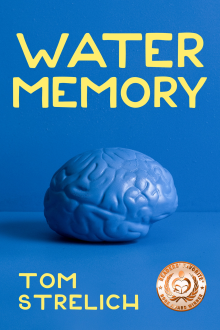
A hilarious dystopian read! READERS' FAVORITE BRONZE AWARD: The magnetic poles reversed, civilization has its clock reset to the cosmic flashing 12:00am from a million years ago, and everybody is forgetting everything it learned since then. Everybody except Hertell Daggett who decides to start civilization over again. What could possibly go wrong?
